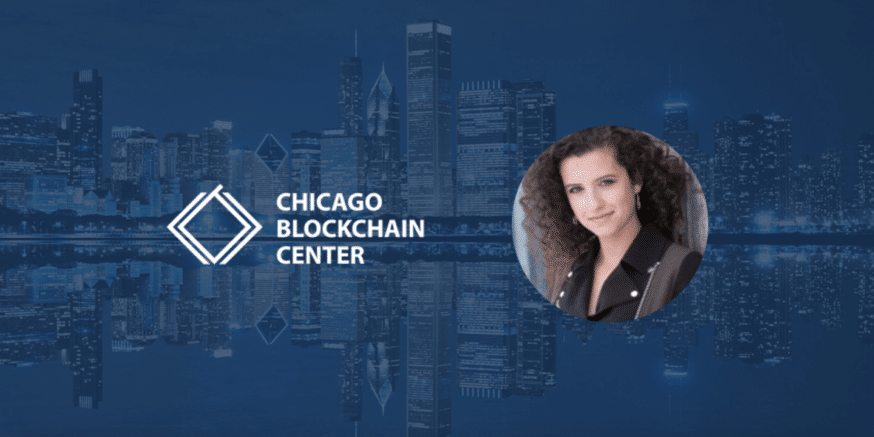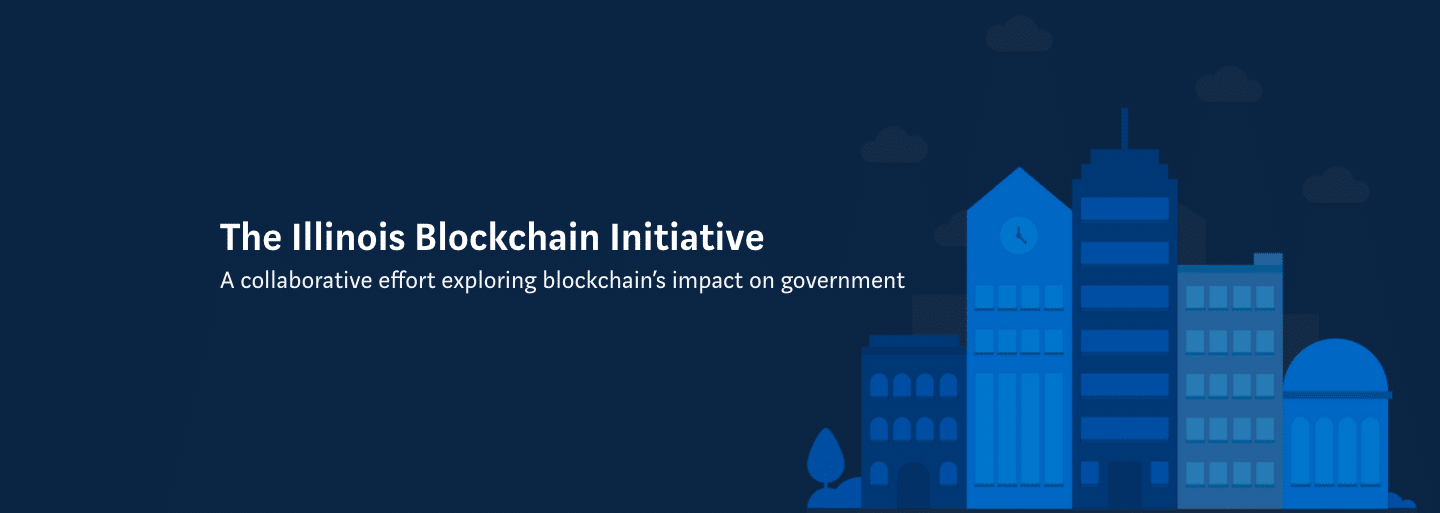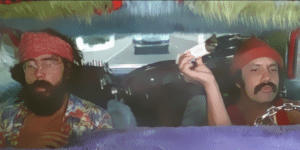Alexandra Prodromos has been working diligently with her team to build up Chicago as the city for blockchain startups and resources.
As the Executive Director of the non-profit Chicago Blockchain Center (CBC), Alexandra works closely with both the private and public sectors to grow and support the blockchain community in Illinois. From hosting meetups and student developer workshops to fighting against misinformation in mainstream media, the CBC is doing it all.
Other than her work at the CBC, Alexandra is also a Research and Market Strategist at Bloq, Inc and is earning her Master’s Degree in Information Systems at Northwestern University.
Coin Central’s Steven Buchko recently had the opportunity to steal a few minutes out of one of Alexandra’s jam-packed days to learn more about the CBC and her jump into cryptocurrency.
The Interview
SB: How did you first get involved with blockchain technology and cryptocurrency?
AP: It’s a weird story, actually. I’m not a developer, although I am currently doing a Masters at Northwestern in Information Systems. It includes database administration and some coding as well, but that’s not my background.
My undergrad degree was in Political Science, and I wanted to go to law school. I was particularly interested in technologies that I thought could change or disrupt the legal space – automated discovery, for example. I was interested in how searching for keywords in thousands of pages of legal documents would change how lawyers would be billed or find precedent.
Around 2014, I heard about smart contracts. My immediate thought was, “How can these be applicable to legal contracts?” I started learning more about them independently and eventually discovered blockchain technology as a whole. Once I did, I realized that the technology expands beyond the legal space. I knew it was going to affect every industry.
This [blockchain] is similar to the foundational level of the internet – a secure method to transfer value that will affect the business processes of every industry going forward.
Once I realized that, I became infatuated. I constantly researched the topic, which at that time was mostly going through Reddit feeds and Twitter, and I read a few books on it. One of the first books I read was the Age of Cryptocurrency by Michael Casey and Paul Vigna. Both are contributors to the Wall Street Journal, and I thought they did a great job of explaining the crypto aspects I hadn’t been as involved in.
On top of that, I started going to conferences and meetups, trying to meet as many people as I could.
As a college graduation gift, my parents got me a ticket to the Consensus conference in New York. I heard people like Matthew Roszak talk, and I even met Vitalik Buterin briefly. He’s only around a month older than me, and I couldn’t believe he had done all that he had at that time.
It was at that conference that I heard the governor of Delaware present their Delaware Blockchain Initiative.
I thought to myself, “ Why can’t Chicago be a hub for blockchain? In terms of startup growth, it’s a more livable space than San Francisco or New York.”
I envisioned that we could work with the [Illinois] government to create less onerous legislation and regulation than what existed in New York. The New York BitLicense is infamous now.
I thought it was a great opportunity, so I put together a proposal and approached the newly created Illinois Department of Innovation and Technology. I ended up working with them on a blockchain workgroup as the only non-government participant. With the help of many other agencies, we created the Illinois Blockchain Initiative (IBI).
From there, I continued to go to conferences. About a year and a half ago, I met Matthew Roszak at one of the conferences, and he brought me onto Bloq. Since June, I’ve been heavily involved with the Chicago Blockchain Center carrying out the third prong of the Illinois Blockchain Initiative – ecosystem development in Chicago.
This involves creating the physical space for meetups, highlighting specific startups, and providing educational resources. The educational resources aren’t just for individuals, though. They’re also for specific industry entities that want to learn more about the technologies.
We’re working to combat a lot of the misleading reporting on the topic. Now that Bitcoin’s been thrust much more into the mainstream, our organization is more important than ever.
Illinois Blockchain Initiative
SB: What pushback, if any, was there with the Illinois Blockchain Initiative as the only non-government member in the group?
AP: It’s pretty amazing. When I approached them, they had “Bringing Illinois into the Future” tech initiatives in place, and blockchain was already a little piece of one of their initiatives. It had been on their radar, but they didn’t feel the need to pursue it aggressively since it was still early days. Even today, it’s still early days for blockchain.
I’m surprised at how forward thinking they were once we talked through it. In my mind, the public sector is a natural application of blockchain. It needs transparency, and it’s a way to provide a trustworthy registry to constituents. Once we talked through that, they were on board right away. I didn’t receive any pushback.
SB: You talked about a three-pronged approach for the Illinois Blockchain Initiative. One is the ecosystem. What are the other two?
AP: The second is to provide non-onerous regulation within the state of Illinois. One of the agencies involved with the IBI is called the IDFPR, the Illinois Department of Financial and Professional Regulation. They provide specific guidance highlighting their existing money transmission laws and how those apply to Bitcoin and potential cryptocurrency businesses.
They also educate legislators on what the technology is so they can create new legislation that’s not overly restrictive but still protects constituents. The most interesting part, in my opinion, is the pilot programs they’re doing.
They did one last year with the Cook County Recorder of Deeds, one of the agencies involved with the IDF [Illinois Department of Finance] consortium. And, they’re doing some others this year as well.
One of them is going to be a digital ID solution that they’ll use to track birth and death certificates on the public blockchain. They’re doing one with health care provider registries as well. And, they’re also going to potentially tokenize green energy credits.
They’re taking the extra step in not only monitoring the ecosystem and protecting constituents but by also “eating their own dogfood” too. They’re seeing how this technology could affect the public sector within their own agencies.
[thrive_leads id=’5219′]
Nationwide Blockchain Community
SB: Are other states and/or cities working with Chicago and Illinois in building out their own programs?
AP: Yes, Illinois has been working with Delaware a little bit from what I’ve seen. We were also recently talking to some folks in New York about potentially working with them.
We’ve got a sister blockchain center in DC that actually influenced how we’re structured. They’re sponsored by the Chamber of Digital Commerce, and more so serve to educate regulators on the hill.
There’s also a blockchain center in LA that we’ve been talking to. They’re in the process of developing their program.
SB: Something that seems to have impressed the blockchain community is how knowledgeable most regulators have been when talking about the technology, especially in the recent hearing with the SEC and CFTC.
AP: Matthew Rozsak, the founder of the Chicago Blockchain Center and founder of Bloq, actually participated in congressional hearings on blockchain in 2015. The difference in how Congress is talking about it in 2018 versus back then is very cool.
Now, there’s the blockchain caucus in Congress and specific representatives that are all about it. It’s been interesting to see the evolution since when he spoke about it to now.
SB: What other changes have you seen in the blockchain industry over the last few years?
AP: When I first started, I would tell people that I’m working for a company that provides blockchain solutions, and I’d just get blank stares. If they had heard anything, it was only Bitcoin.
Now, people can’t hear enough about it. I talk with every other Uber driver about crypto. I think I give out more cards on those trips than at events sometimes. It’s crazy – everyone started noticing it within the last year.
Another thing I’ve been noticing is the appetite of the student developer community. That’s been cool to watch because it’s something that I’m really passionate about.
The big problem we haven’t quite solved yet is the limited supply of blockchain developers. I heard a statistic that Javascript, a relatively new language, has about nine million competent developers worldwide. On the other hand, for certain blockchain languages, like Solidity, it’s estimated that there are about five thousand competent developers worldwide.
For all the new innovation that’s happening, it’s important that we still maintain the open source developer community and make sure people are able to contribute.
Chicago Blockchain Center Past, Present, and Future
SB: Tell me more about the workshops that the Chicago Blockchain Center hosts.
AP: That’s one of the things we want to do more of in 2018.
Last year, we hosted a two-day Solidity smart contract boot camp. Students had to apply to get in and pass a certain competency so we could dive deep into the code. It was hosted at DePaul in partnership with the University of Illinois. Professor Andrew Miller, one of the foremost thought leaders on smart contracts and Solidity, was also involved. At the end of just two days, the students were able to write great smart contracts in Solidity.
That boot camp was really well received. We had more than 50 students who attended and more that we had to turn away. We also got a lot of people contacting us afterward saying that they wish they knew about it ahead of time. We’re going to try and do similar events this year.
We also partnered with HyperLedger last year for a two-day HyperLedger HackFest. It was hosted at the mHub, and the HyperLedger executive team came out for support. Their team walked around to make sure people knew how to use the software. We received a lot of positive feedback from that event as well.
We’re looking to host similar events as well as highlight specific startups in the space. We recently had a couple of the Blockstack founders come out and give our audience a peek behind the curtain at their company. That was very cool.
SB: What are some of the next big things on the docket for the Chicago Blockchain Center?
AP: We’re going to continue hosting our meetups like the Chicago Ethereum Meetup as well as industry-specific events like the Chicago Blockchain Real Estate Collective and HyperLedger meetups.
We’re also looking to bring some bigger voices to Chicago. We’re partnering with BTC Media to host Distributed Markets in Chicago in April. It’s the first time they’ve ever done it here, and we’re really looking forward to it. It’s going to include a hackathon, a code camp, and a conference over the weekend.
Finally, we’re going to formalize our incubator program. We’ve been able to meet and get in touch with a lot of the startup community in Chicago, but we want to provide more formalized and dedicated resources for them moving forward.
We’re working to accomplish all of these things while still hosting more student developer workshops too.
SB: Where do you see the Chicago blockchain community 5 years from now?
AP: That’s a tough one. It’s sometimes hard for me to look even a year ahead since the space is changing so rapidly. Who would have predicted that ICOs and the token economy would be as important last year as they ended up being?
We’re unique from other blockchain centers out there in that we’ve got public sector and private sector support as a non-profit. We’re going to continue working through the Illinois Blockchain Initiative to support this growing community in a way that isn’t stifling. Wherever we are five years from now, I want to make sure that’s still a big part of the conversation.
I want to also make sure that we’re continuing to educate students. I would love to have a bigger program in that respect. To do that, we’re helping one of our fund partners, the Blockchain Education Network, to grow as well.
I would love to see Chicago be the national, if not worldwide, hub for blockchain startup headquarters and blockchain educational resources. The sky’s the limit.
SB: Anything else you’d like our readers to know?
AP: It’s important to keep in mind that we’re a non-profit; we’re all volunteers. We’re trying to be a resource that’s community driven. With that, we’re always looking for help and suggestions. Our goal is to be the connective tissue between all the different entities that exist in Chicago to make a more cohesive and inclusive community.
Thank You
Thank you, Alexandra. Not only for taking the time to talk with us but for also devoting so much of your spare time on blockchain community support. We look forward to seeing everything that you and the Chicago Blockchain Center are going to accomplish in making Chicago an exemplary city for blockchain innovation.
Additional Information
Illinois Blockchain Initiative
Never Miss Another Opportunity! Get hand selected news & info from our Crypto Experts so you can make educated, informed decisions that directly affect your crypto profits. Subscribe to CoinCentral free newsletter now.













